- Exhaust system!
- Adaptive dampers
- Value for money
- Luxury pack should be standard
- Clutch
- Lack of safety systems
You may not be aware but in Australia, we love our performance cars – we buy more per capita than many other countries. Hot hatches seem to be one of our favourite types of performance cars – just look at the percentage of hot Golfs and Meganes around, and you’ll see what we mean. naturally, Hyundai wanted a piece of the action and in 2018 it launched the i30 N Performance. Sales were strong so in came a second bodystyle: the Fastback. We tested the 2020 Hyundai i30 N Fastback to see what a second i30 N brings to the Aussie performance car scene.
Price & Specs: 8.5/10
The 2020 Hyundai i30 N Fastback starts off at $42,900, which is $1,500 more than the N hatchback. In standard trim, both come with LED lighting, 19-inch alloy wheels, an 8.0-inch touchscreen with Apple CarPlay and Android Auto, inbuilt satellite navigation with live traffic reporting, dual-zone climate control, rear parking sensors with a reversing camera, tyre pressure monitoring, sports bucket seats with lumbar support and a leather sports steering wheel.
The i30 N undercuts the Renault Megane RS by over $4,500, making it a total bargain in the hot hatch segment. And let’s not forget that the N is made in Europe as well (Hyundai has a factory in the Czech Republic).
“The i30 N undercuts the Renault Megane RS by over $4,500, making it a total bargain in the hot hatch segment.”
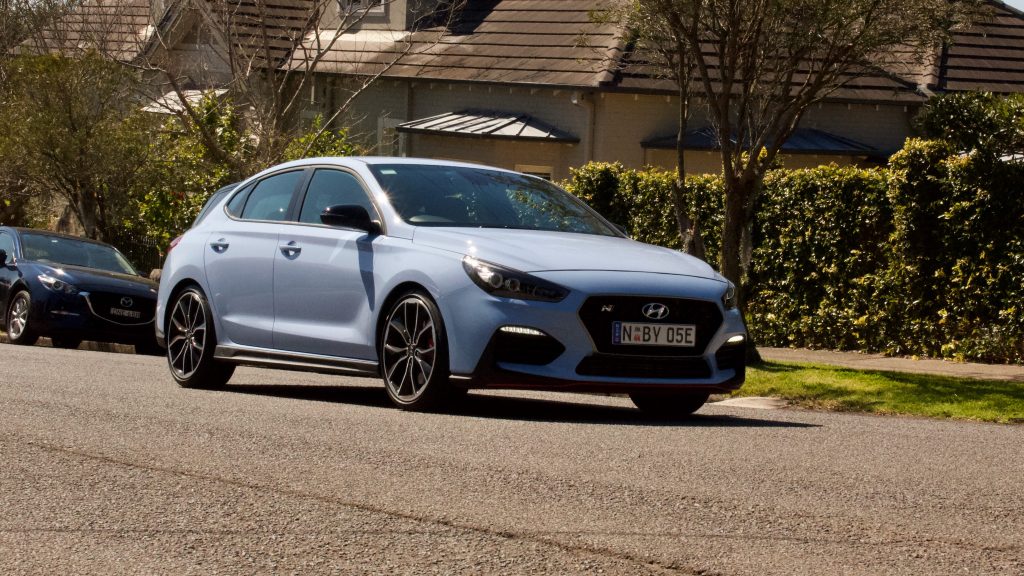
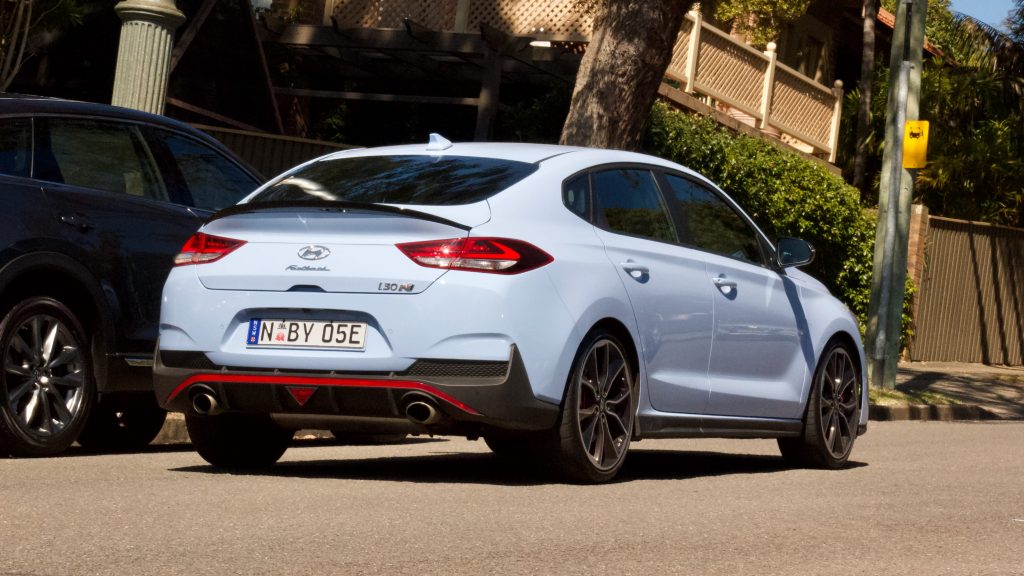
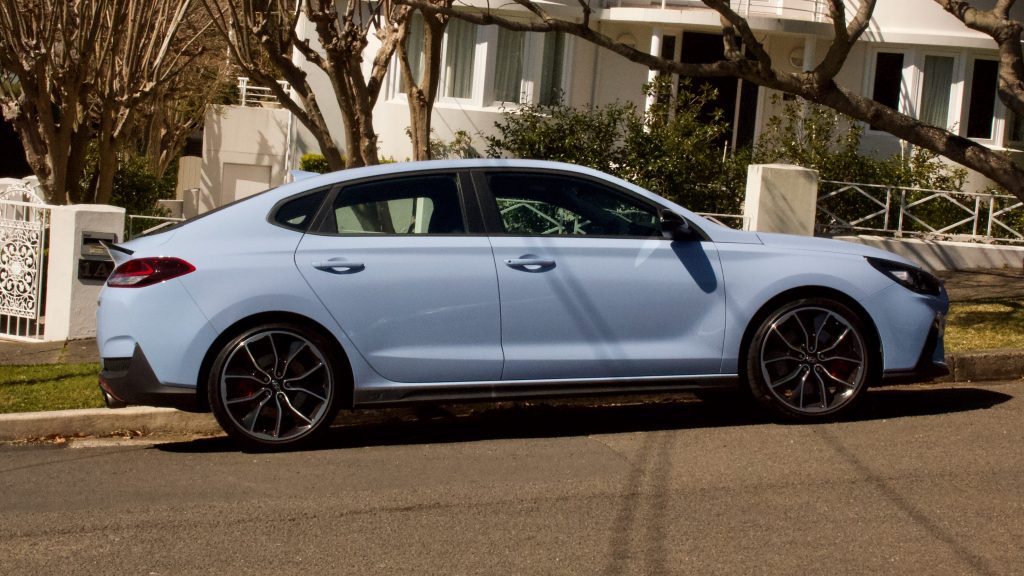
Optional on the 2020 Hyundai i30 N Fastback is a $3,000 Luxury Pack, which we think should be standard equipment. It includes keyless entry and start, suede/leather trimmed seats, heated front seats and a heated steering wheel, 12-way electrically adjustable front seats with driver’s memory functionality, front parking sensors, auto-folding mirrors with LED puddle lamps, rear privacy glass and wireless charging. A $2,000 panoramic sunroof can be added on top of the Luxury Pack as well.
Standard safety kit on the i30 N Performance includes forward collision warning with auto emergency braking (AEB), driver attention warning and lane keep assist with lane departure warning. While it’s a good start, we’d like to see kit such as adaptive cruise control, blind-spot monitoring with rear cross-traffic alert, rear AEB and auto high beam added to the spec list – a Golf GTI has all of those features as standard, and most can be had on an i30 costing comfortably under $30,000 as well.
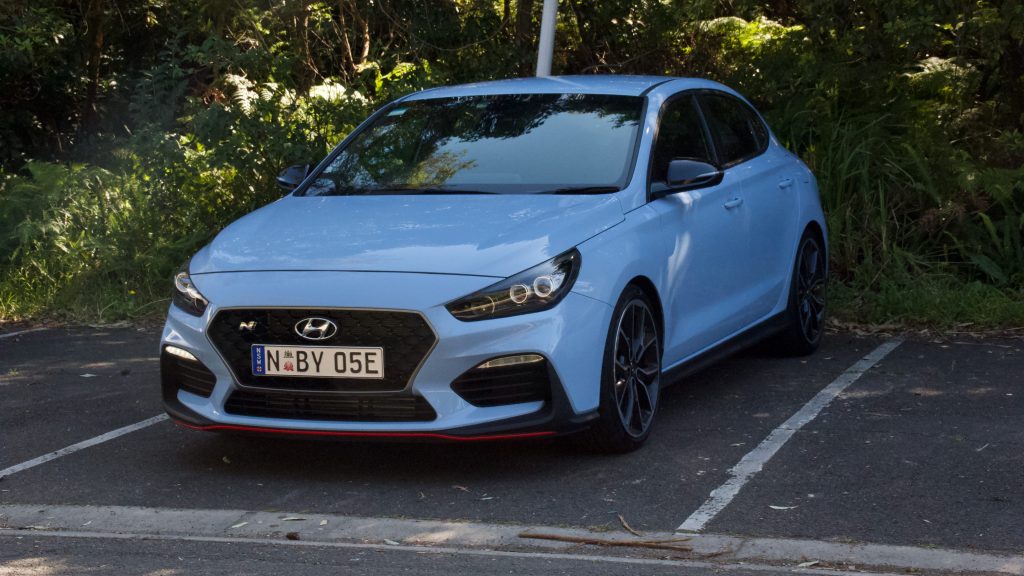
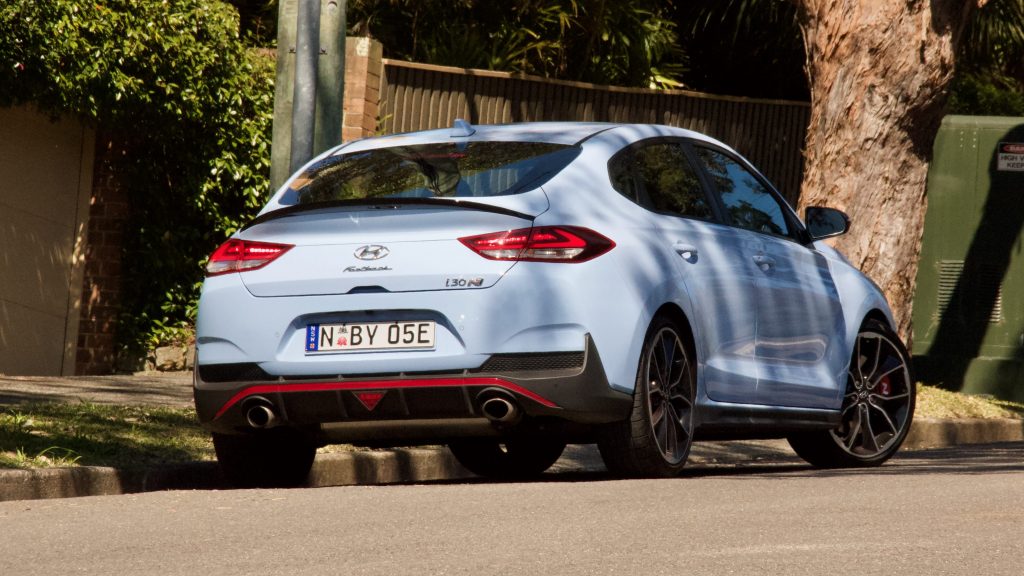
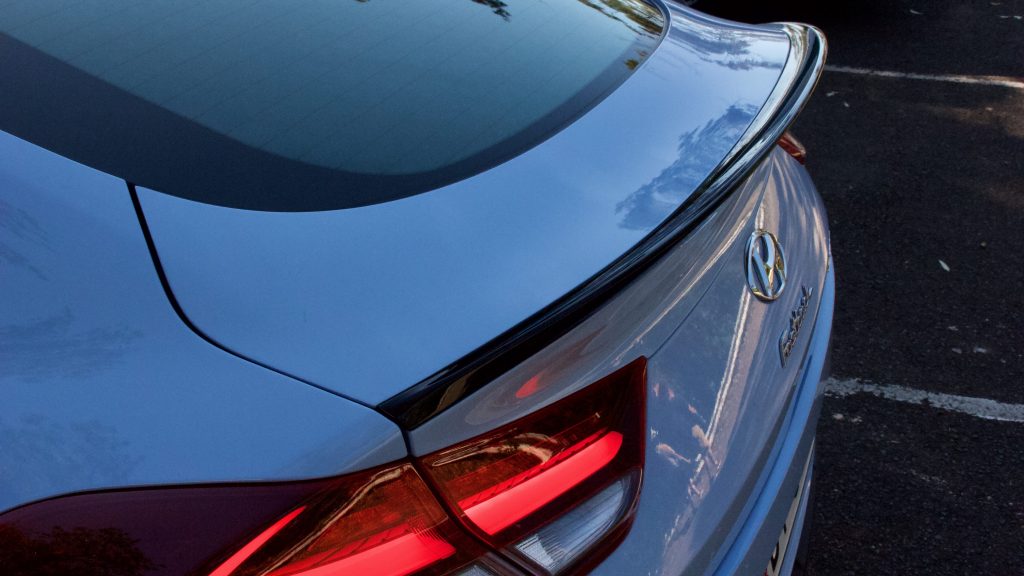
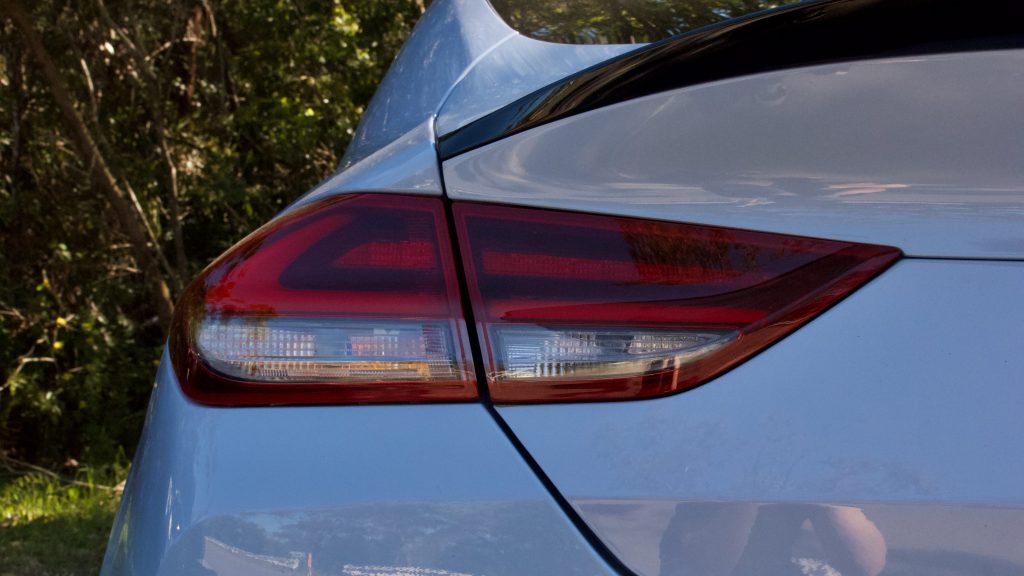
The colour on our 2020 Hyundai i30 N Fastback test car is the hero colour known as ‘Performance Blue’, other no cost standard paint options are ‘Shadow grey’, ‘Engine Red’ and ‘Polar White’. Metallic paint options come at a $495 premium and are ‘Phantom Black’, ‘Dark Knight’ and ‘Micron Grey’.
Engine & Drive: 9.0/10
The sole engine option for the 2020 Hyundai i30 N Performance is a 2.0-litre turbocharged four-cylinder petrol unit which produces 202kW of power and 353Nm of torque, and drives the front wheels through a mechanical limited-slip differential. At the time of writing, the standard six-speed manual gearbox is the only transmission option available though an eight-speed dual-clutch auto is confirmed for the car’s mid-life update which should land here in 2021.
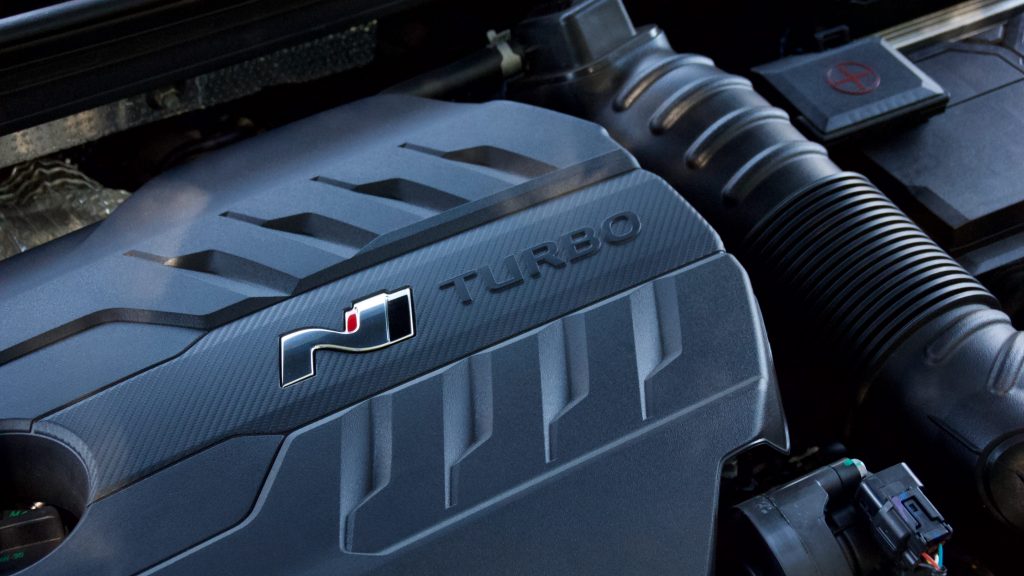
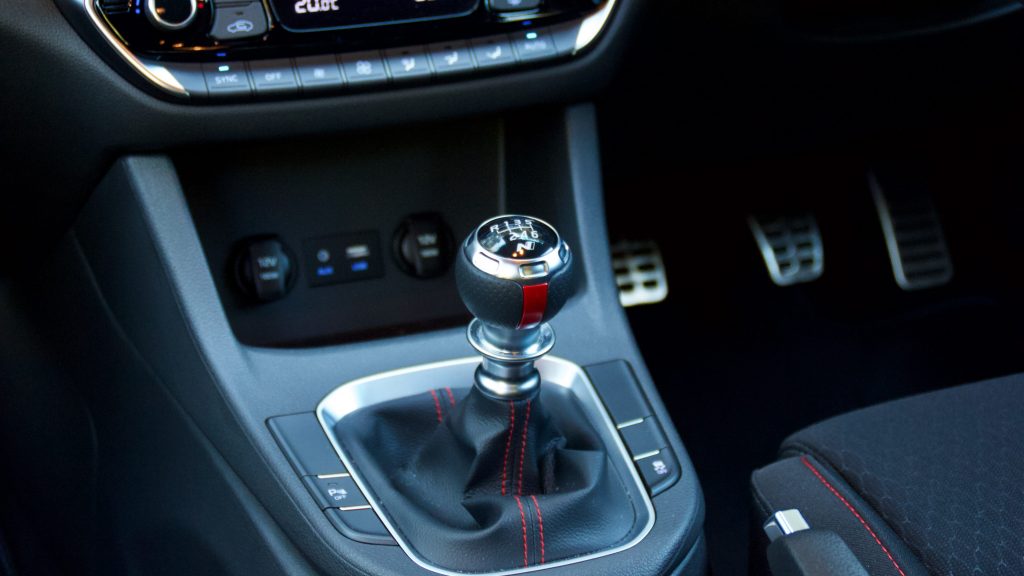
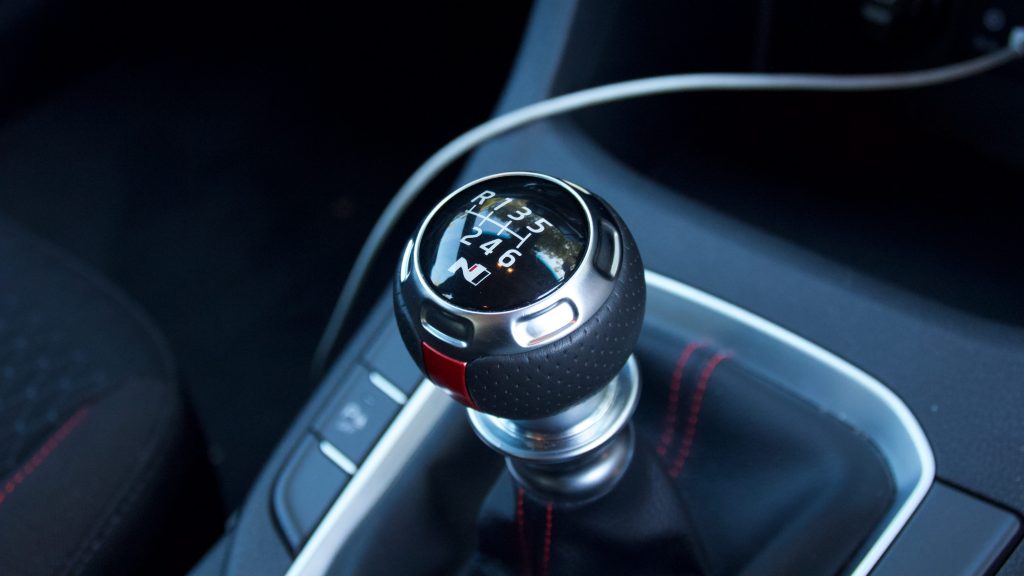
The power outputs of the 2020 Hyundai i30 N Fastback are healthy compared to the 180kW Volkswagen Golf GTI, though that car has 17Nm more torque.
While an auto option will find it more sales, we think the standard six-speed manual is excellent. It’s a tight gearbox with rifle bolt action accuracy, though the clutch does take time getting used to – this writer has been driving manual every day for more than five years and found the N difficult at first. It’s just too unpredictable and hard to get used to – you’ll find yourself over-revving or stalling for the first few drives trying to find the sweet spot, which always seems to change.
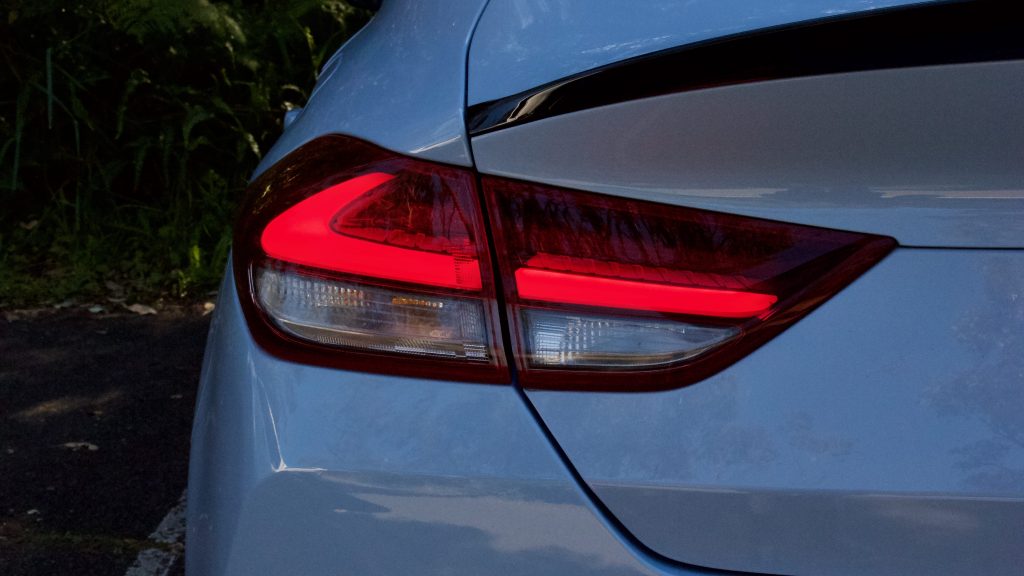
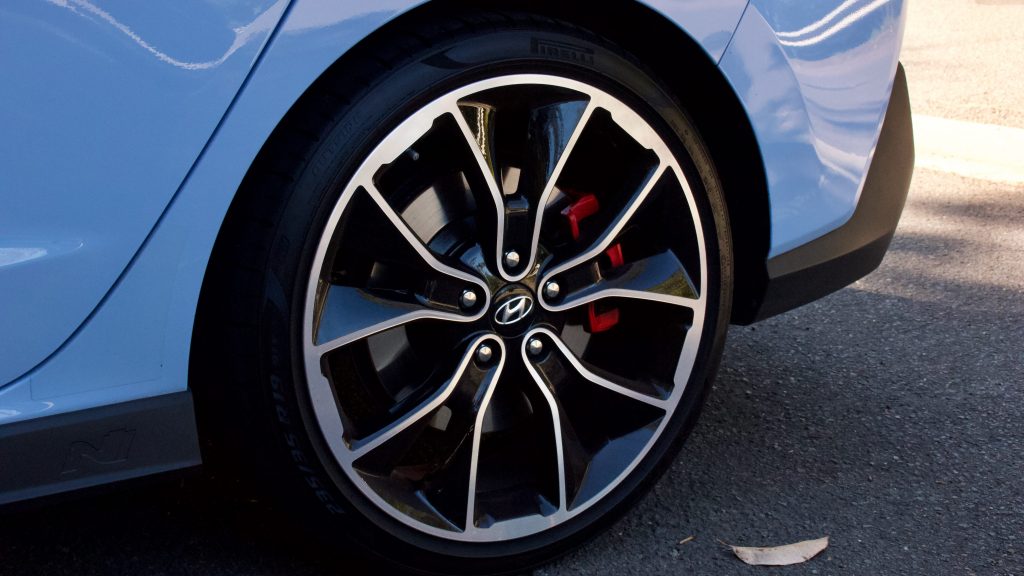
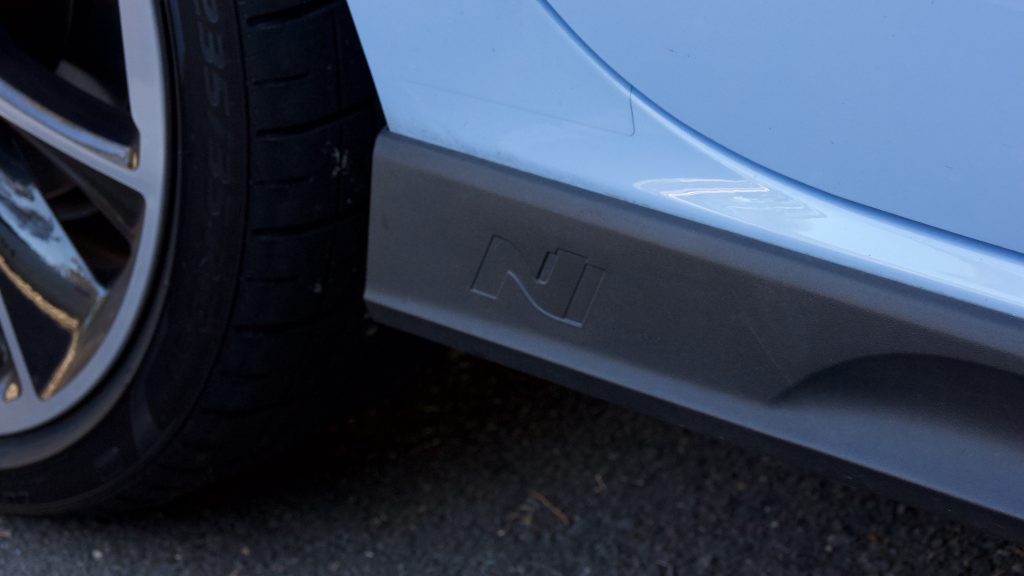
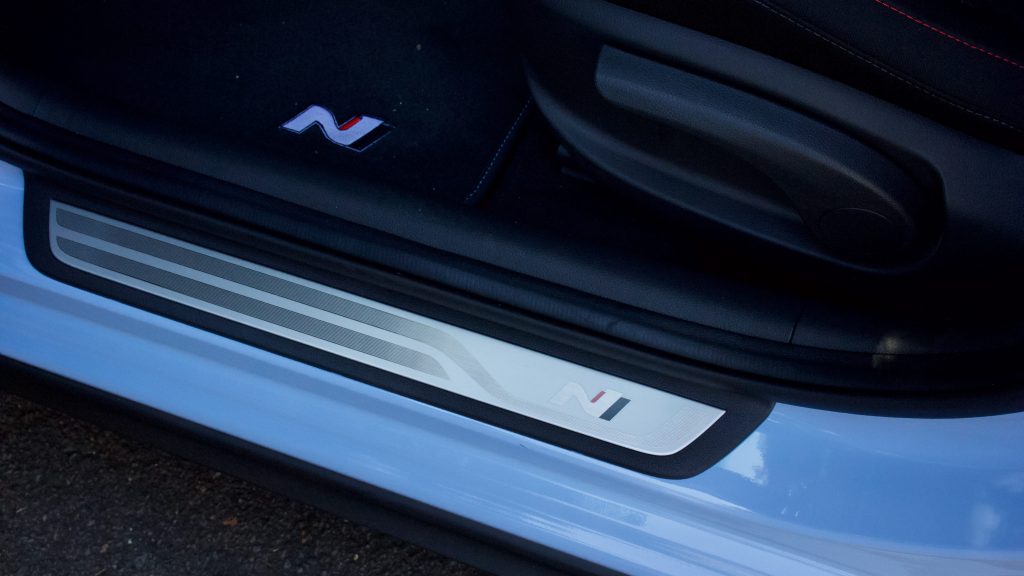
The engine in the 2020 Hyundai i30 N Performance is a cracker – literally, it cracks and pops, which gives it some wonderful audible drama against its competitors. Even at start-up it snarls and makes itself known to everyone around it. The way it accelerates is unlike any other hot hatch we’ve driven – yes there is a little torque steer but that’s what makes it more fun. You’re always aware of what’s going on, and it’s certainly more fun than many other hot hatches. Selecting N Mode on the steering wheel opens up the standard bi-modal exhaust giving it a nice deep sound. Higher up in the rev range it lets off a pop much like a gun-shot to the detriment of passers-by.
“The engine in the 2020 Hyundai i30 N Performance is a cracker – literally, it cracks and pops, which gives it some wonderful audible drama against its competitors.”
In N Mode, the throttle response also livens up, the traction control loosens into its sport setting, the rev-matching downshift function activates and so does launch control. When using the launch control, the 2020 Hyundai i30 N Fastback launches to 100km/h from a standstill in a claimed 6.1 seconds – 0.1 seconds faster than the DSG-equipped Golf GTI.
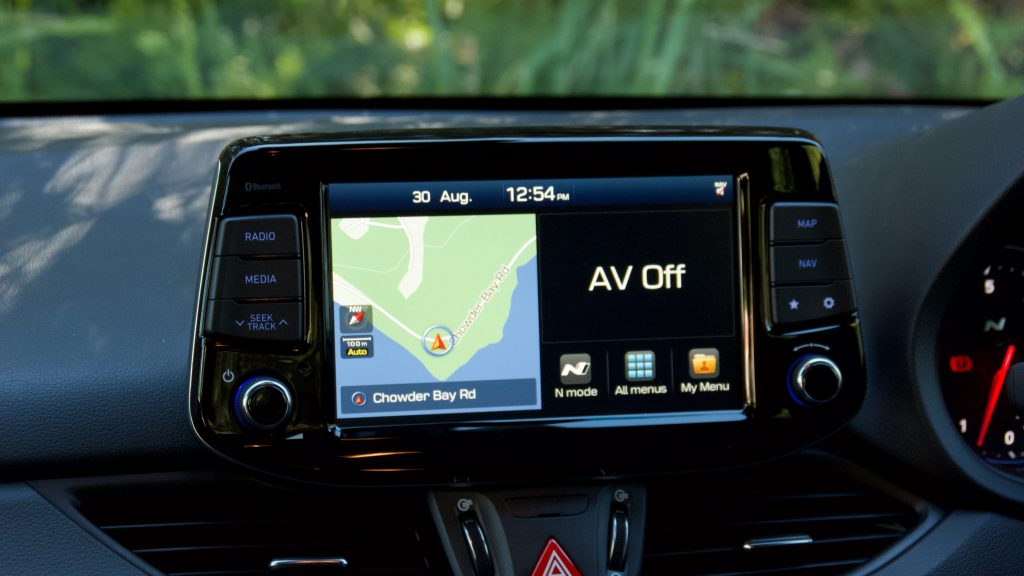
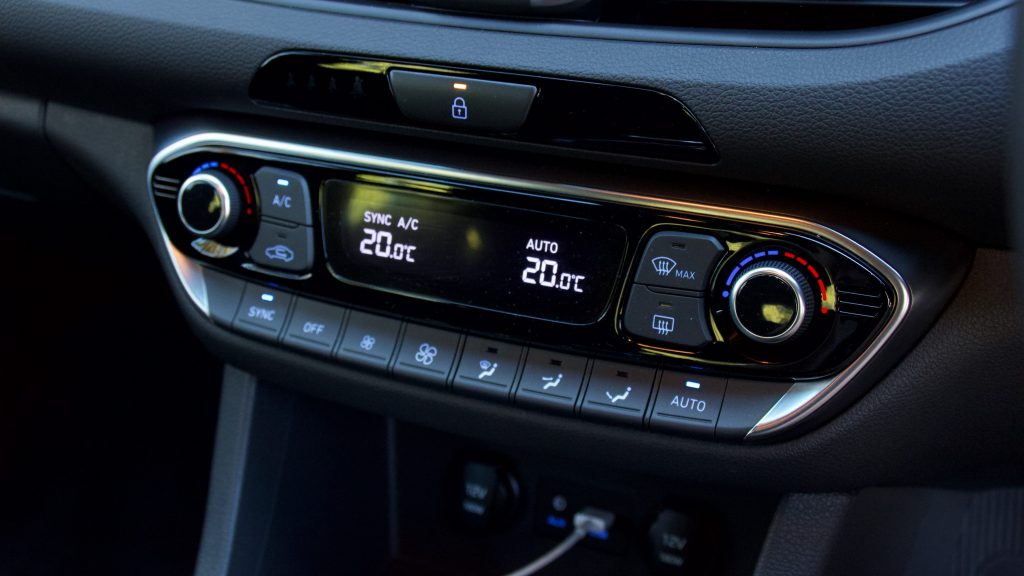
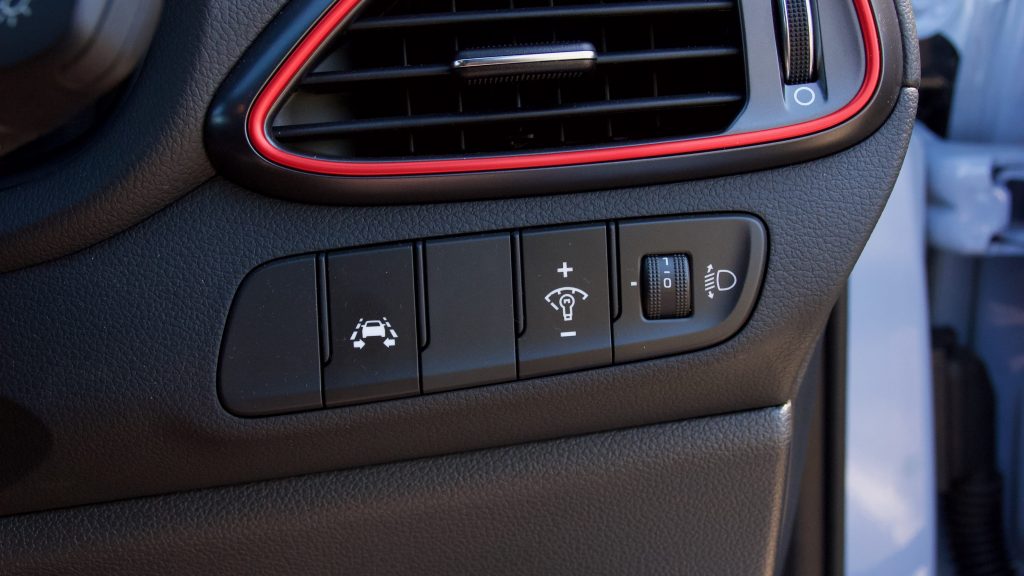
The claimed average fuel consumption for the 2020 Hyundai i30 N Performance is 8.0L/100km, and in our week with it we averaged around 11L/100km with a mix of calm city and spirited driving. This figure isn’t fantastic compared with the 6.5L/100km average claim of the Golf GTI and 7.4L/100km average claim of the Megane RS Sport, though both those cars would be similarly thirsty in the same conditions.
Ride & Handling: 8.0/10
The i30 N Performance comes with adaptive dampers as standard, which work a treat in providing genuinely different driving experiences depending on the mode you’re in. In the regular Comfort mode, the ride is on the firmer side but not uncomfortable by any means. In Sport mode, the ride gets slightly firmer but again not overly uncomfortable and the steering weight also gets marginally stiffer but in N Mode the car stiffens up to the point where on public roads (especially in Sydney) it can get uncomfortable.
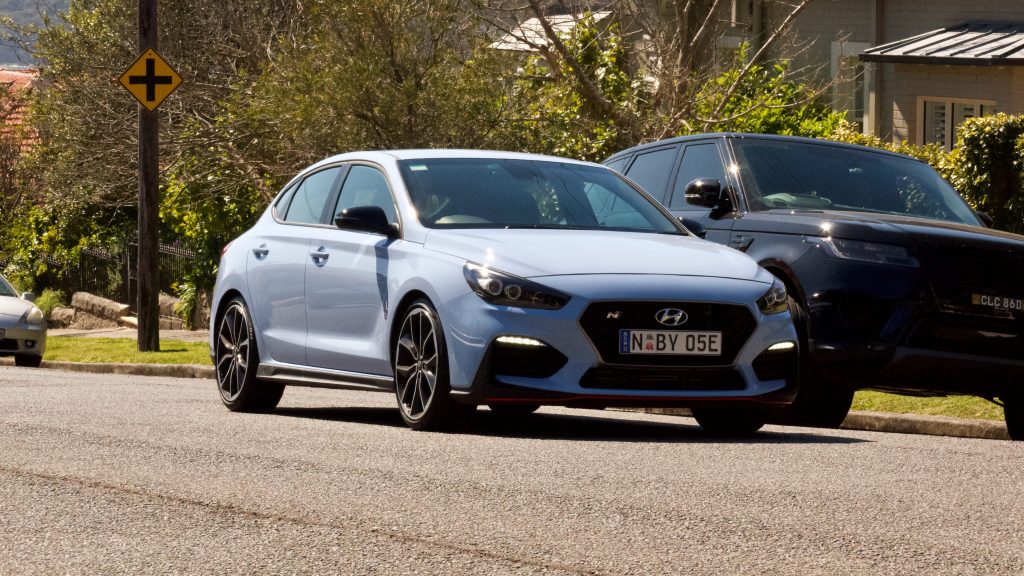
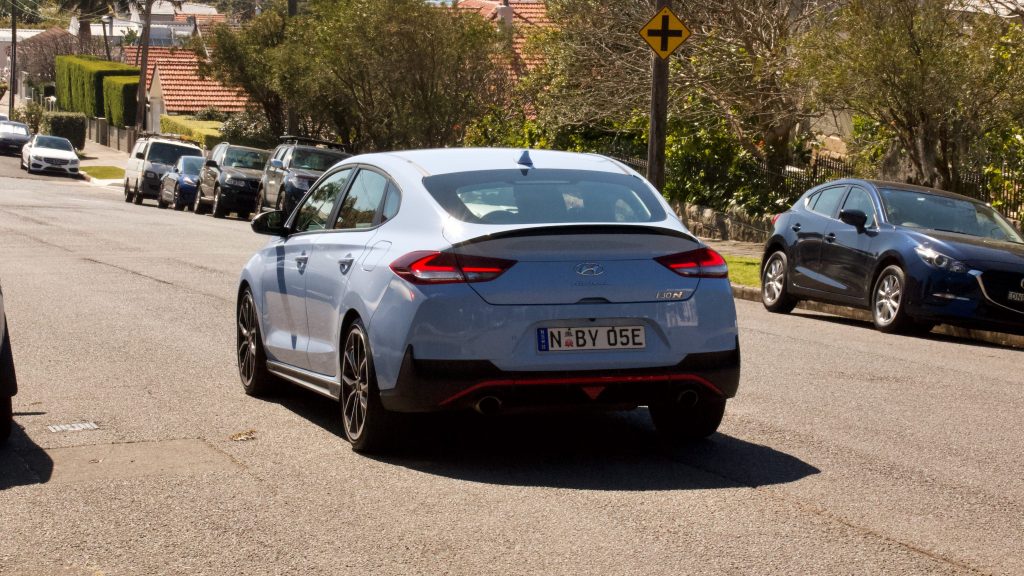
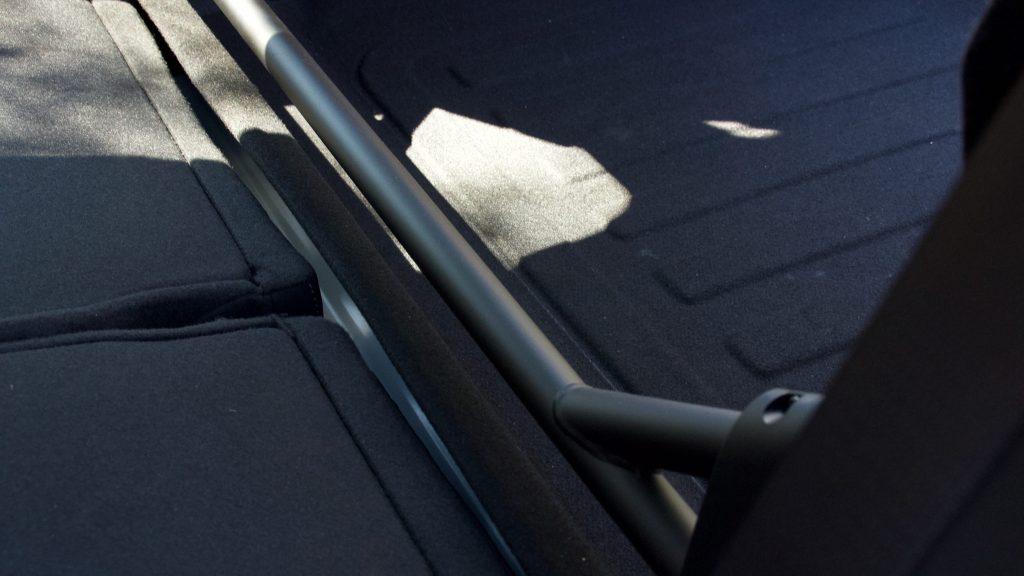
The trade off for the harsh ride in N Mode is that it handles excellently. The 2020 Hyundai i30 N Performance is nimble and agile when cornering at speed and is a genuinely entertaining car. The excellent handling is down to the suspension setup, the standard front limited-slip differential and the standard 19-inch alloy wheels that are wrapped in N specific Pirelli P-Zero tyres.
“The 2020 Hyundai i30 N Performance is nimble and agile when cornering at speed and is a genuinely entertaining car.”
Interior & Practicality: 7.0/10
The interior of the 2020 Hyundai i30 N Performance serves its purpose. Yes, it isn’t the best quality when compared to its Euro rivals, but the company’s budget clearly went into the car’s driving dynamics. Is that a worthy trade off? Depends on what you’re after – the Golf GTI and Megane RS do offer better quality interiors with soft touch dashboards and door panels. They also offer better sound systems – the speakers in the i30 N are sub-par.
“Yes, it isn’t the best quality when compared to its Euro rivals, but the company’s budget clearly went into the car’s driving dynamics.”
It’s a practical cabin though, with a big centre console storage hole, reasonable door pockets and a big glovebox – which, unlike Korean-made i30s, has a light. The standard 8.0-inch touchscreen is a breeze to use, though it’s due to be replaced by a new 10.25-inch unit soon that currently features in the Ioniq and Kia Seltos.
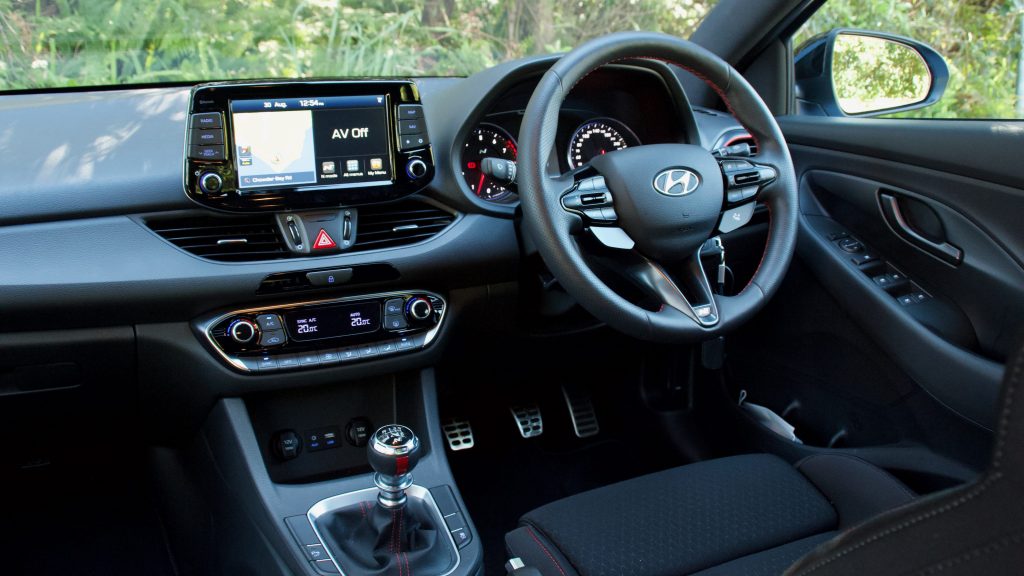
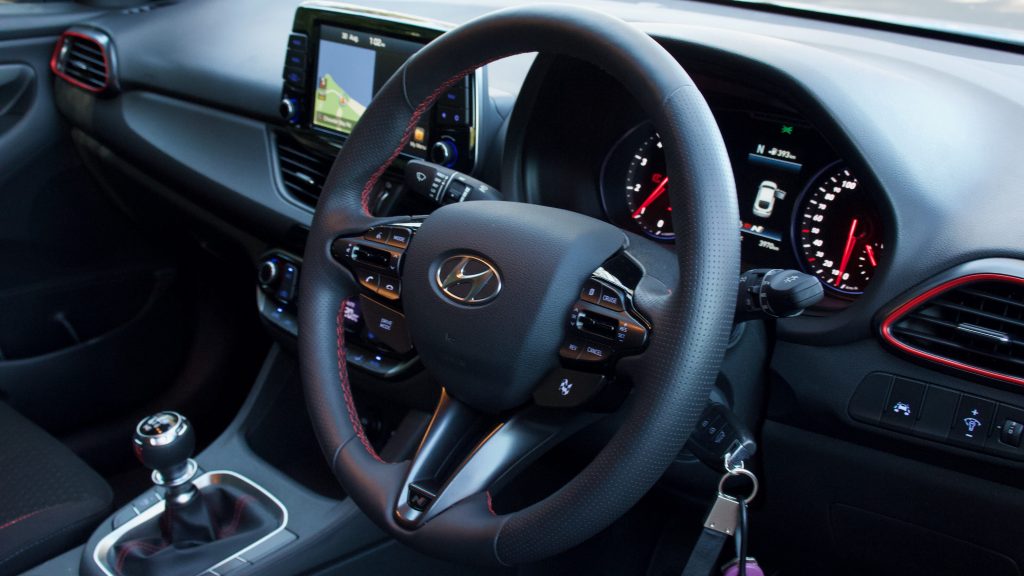
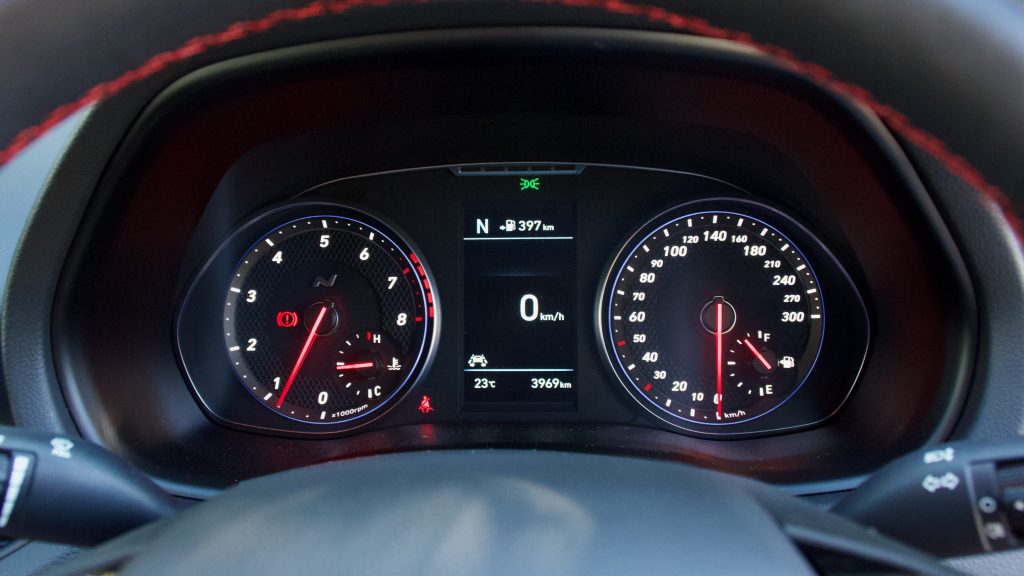
The rear seat room is reasonable with good leg- and kneeroom, though headroom is tight for anybody over six-foot tall. It features a rear centre arm rest and shallow door pockets, but no air vents or rear charging ports.
The i30 N Fastback offers 436-litres of cargo space with the rear seats in place and 1,337-litres with them folded down – more than the hatchback, which offers 381-litres and 1,287-litres respectively. The Fastback also has a larger boot than its rivals – the Golf GTI has 380-litres of space and the Megane RS 434L.
Running Costs & Warranty: 8.0/10
Like all new Hyundai products, the 2020 Hyundai i30 N Performance comes standard with a five-year/unlimited kilometre warranty, which is the same that is offered by Volkswagen and Renault. The N also comes with 12-months roadside assistance, which is renewable by a further 12-months for up to four years free of charge with every scheduled service through an authorised Hyundai service centre.
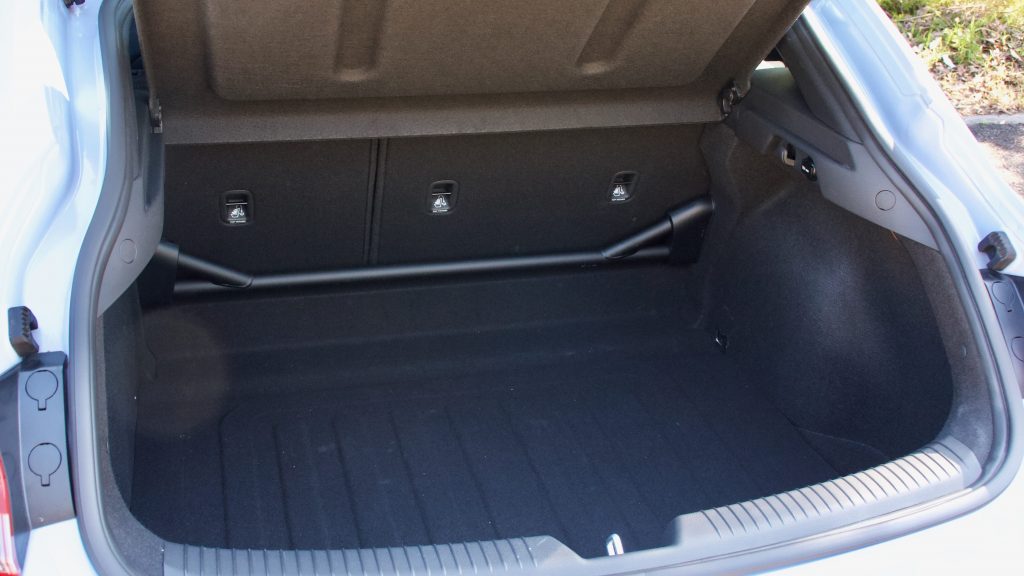
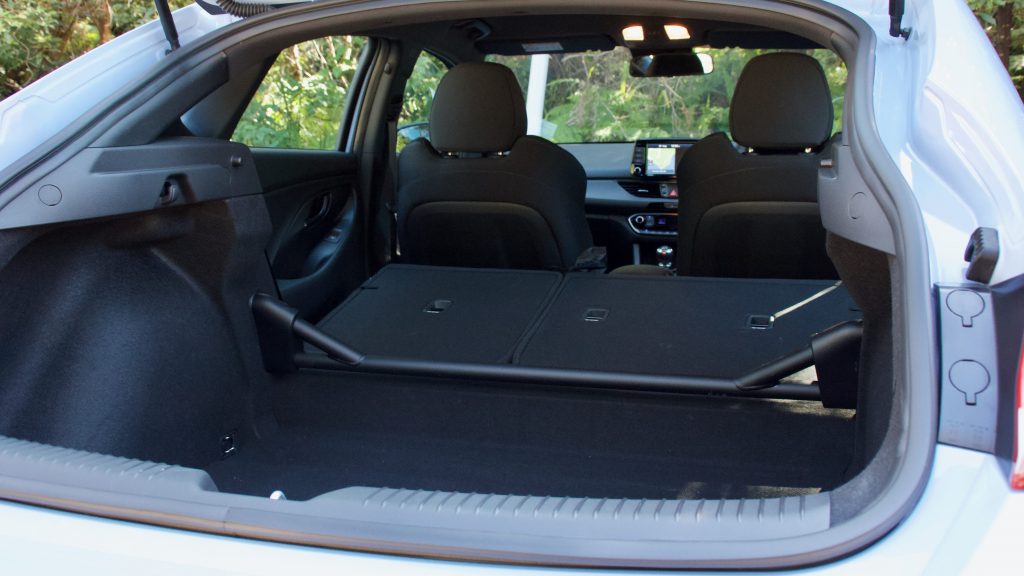
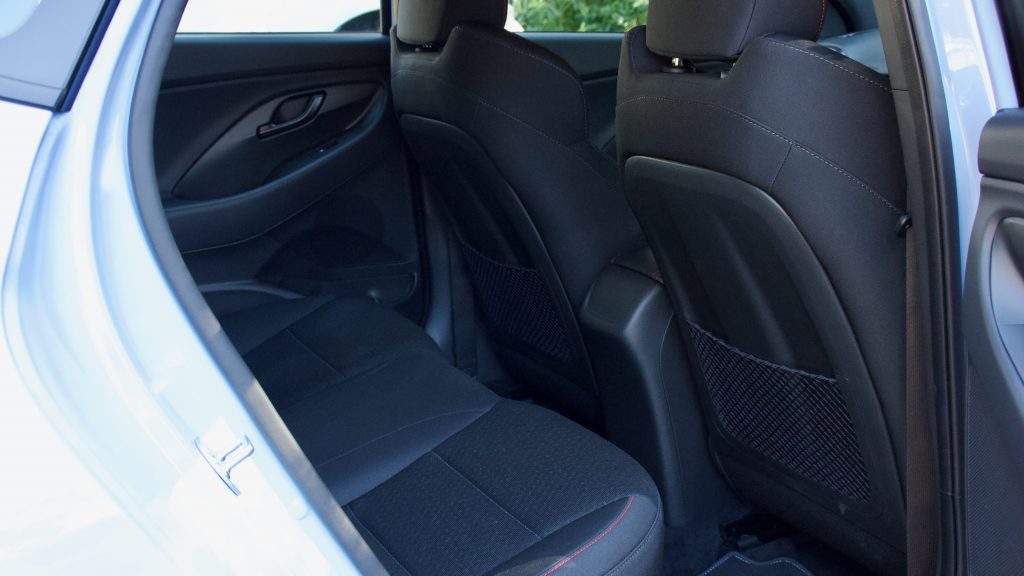
Servicing the 2020 Hyundai i30 N Performance comes around more often than its rivals – that’s every 10,000km or once a year (whichever comes first) and a Golf GTI has 15k intervals and the Megane 20k. The cost of servicing the 2020 Hyundai i30 N Performance over three years is $897, which is cheaper than the $1,556 it would cost to service a Golf GTI over the same period and the $1,197 it would cost to service the Megane RS – though keep in mind if you travel longer distances, it will cost more.
2020 Hyundai i30 N Performance DiscoverAuto Rating: 8.3/10
We really like the standard i30 N and the addition of the Fastback bodystyle has added a new choice to the range that is largely without competition. It’s not perfect – the cabin is a bit of a let down and the ride can be quite firm, but it’s a very fun car that offers a lot of character.
The design and added practicality of the Fastback model, combined with the powerful engine and clever suspension make for an epic dynamic package that gives the big players a run for their money.
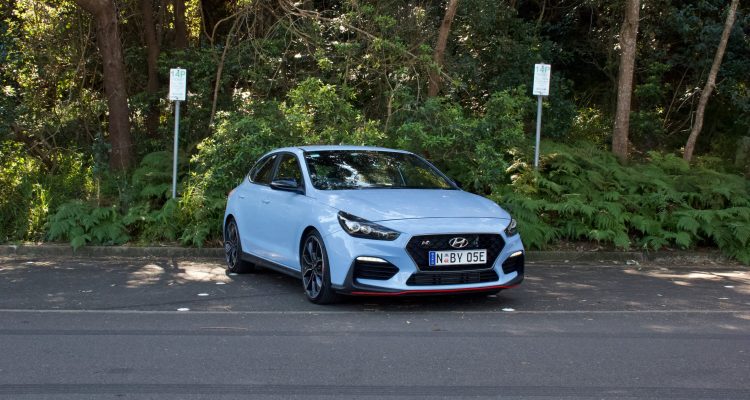
Leave a Reply